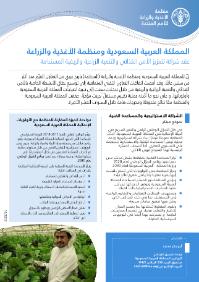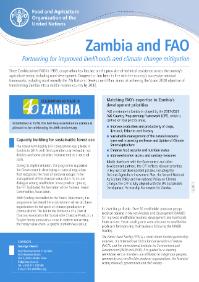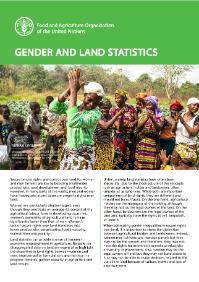المملكة العربية السعودية والفاو
يربط بين منظمة الأغذية والزراعة والمملكة العربية السعودية تاريخ حافل بالتعاون. فعلى مدى أكثر من 50 عاماً، غطت المساعدات المقدَّمة من المنظمة الطيف الكامل من التنمية الزراعية والريفية عبر تدخلات مختارة بعناية لتلبية المجالات ذات الأولوية العليا التي حددها البلد ووضعه الإقليمي. وتشمل بعض الملامح البارزة للتعاون صياغة أُطر للسياسات وأُطر تنظيمية بما يشمل تنمية القدرات الوطنية والمساعدة التقنية لزراعة البستنة العالية القيمة.












